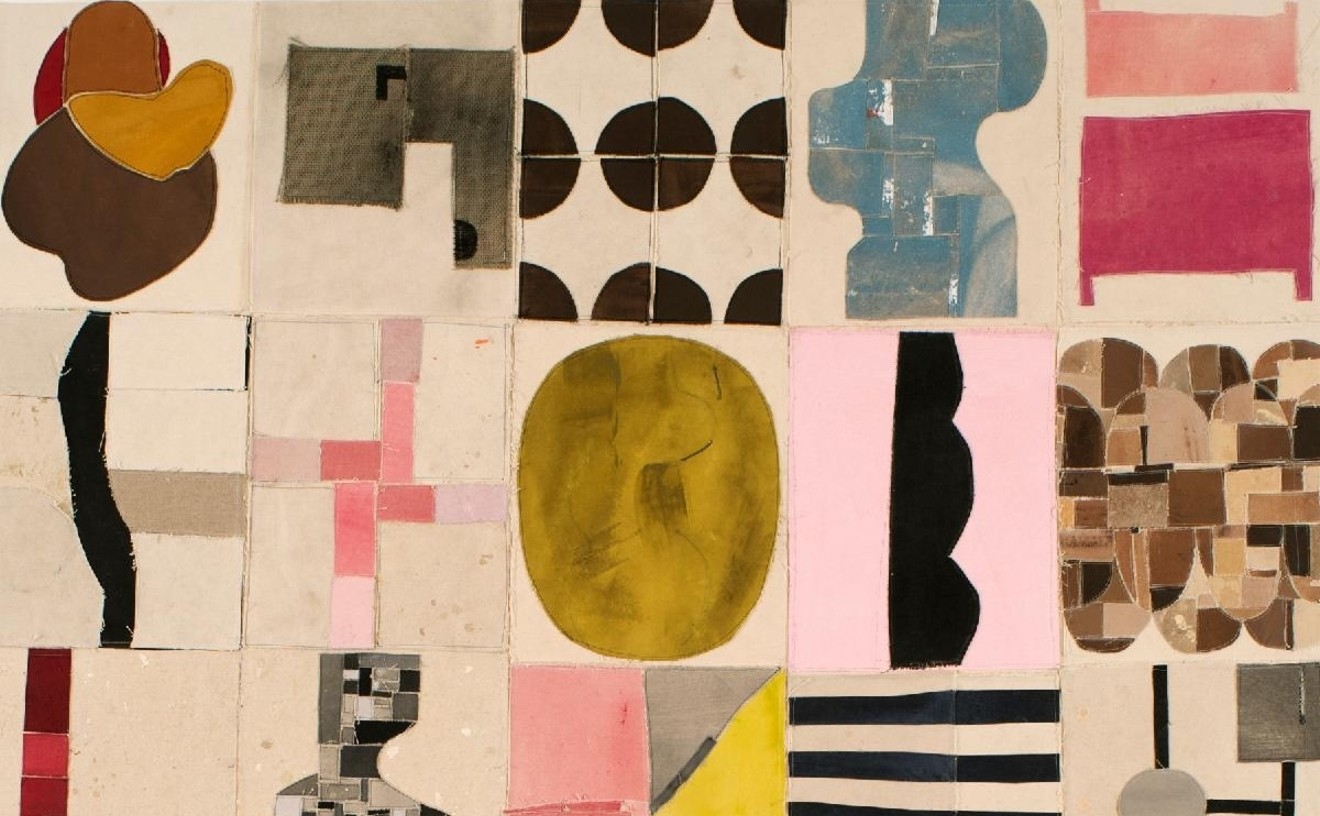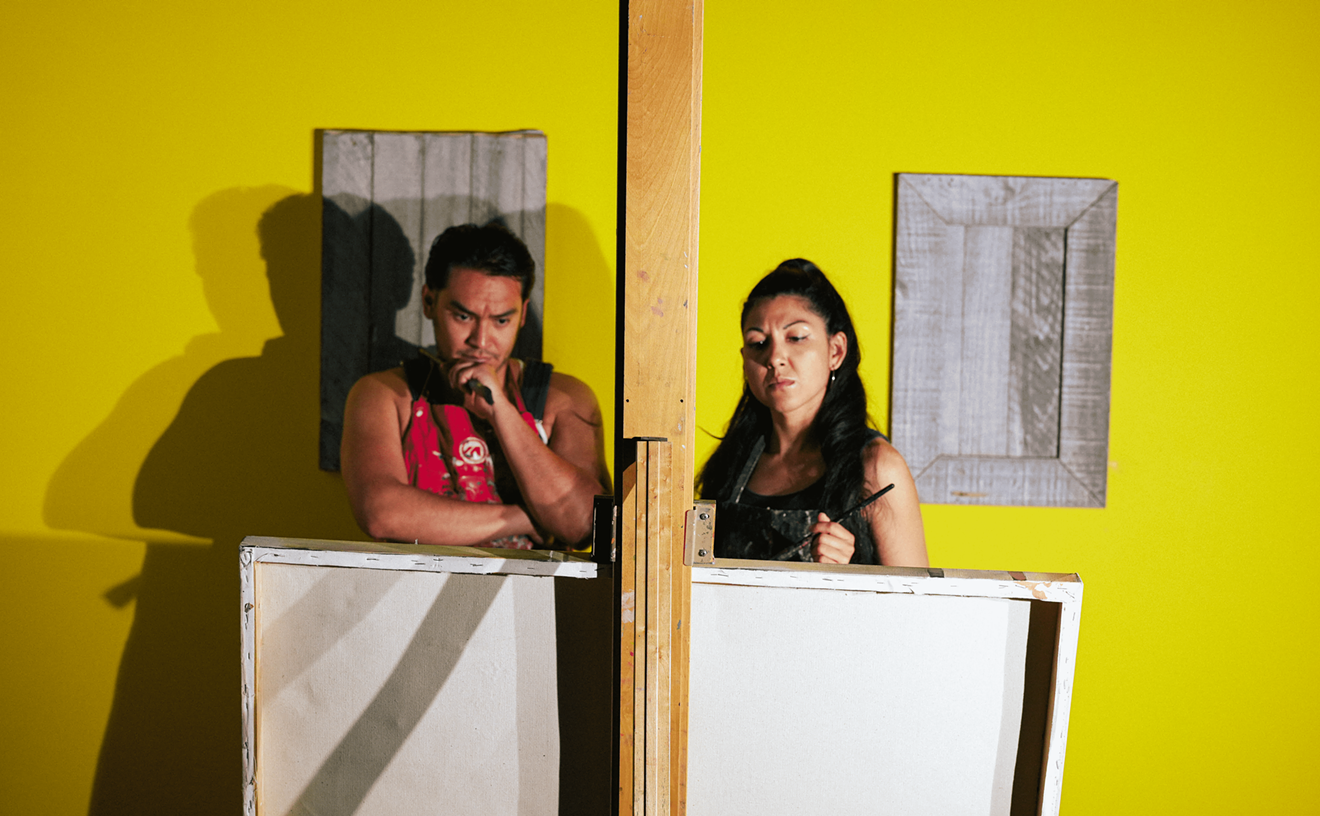Sam is almost preternaturally wise and kind, a champion ballroom dancer who's coaching Willie for an upcoming contest. The relationship between the two and Hally is warm and teasing. They discuss famous visionaries, men who, as Hally puts it, "give history a kick up the backside and get it going again" -- men such as Napoleon, Charles Darwin, Abraham Lincoln and Shakespeare. Tolstoy, suggests Hally.
"Jesus," Sam responds.
There are reminiscences about a kite Sam once made for Hally out of strips of wood, a box, brown paper and Hally's mother's stockings. When the boy mocks the men's interest in ballroom dancing, they respond with an impassioned description of the dance floor as the model of a harmonious society in which no one ever bumps or jostles anyone else, contrasting this to the world they inhabit, where "none of us knows the steps and there's no music." Inspired, Hally decides that he will use the contest as the theme of a required paper on "an event of cultural or historical significance."
But the easy camaraderie is ruffled by jarring moments, as Hally periodically reveals his half-conscious sense of white superiority or orders Sam and Willie around. When he learns that his loved and hated father is about to return home, he erupts into rage and turns on his spiritual father, Sam. The shattering fight that ensues imperils Hally's soul, stops time, taints the past and threatens to destroy the future.
Master Harold and the Boys is a political play, but it's also an act of personal expiation. Fugard has said that it mirrors the milieu of his boyhood, in which two black men provided a model of manhood for him. Like Hally, he got into a senseless fight with one of them, Sam Semela, during which he behaved as vilely as does his protagonist. The incident is clearly the source of the play's emotional power: It filled Fugard with a shame so deep that it was decades before he could write about it.
The Bas Bleu production both does and does not do justice to this extraordinary script. The only seasoned actor among the three on stage is Leonard E. Barrett Jr., who plays Willie. Willie is the least fleshed-out of the characters, but Barrett makes him entirely real, as he simultaneously accedes to and mocks the menial tasks he's forced to perform -- doing them with exaggerated care, crawling on the floor or dancing in position. But every now and then, Barrett seems to be working too hard, as if he feels the presence of a vacuum on stage that needs to be filled. It's a natural impulse, because his co-actors don't consistently pull their weight.
Earlie Thomas, who plays the pivotal role of Sam, is a onetime football star and Colorado State University entomologist who began acting just two years ago. He's extremely talented, but the role of Sam is a major undertaking. Thomas is interesting to watch: His gestures are eloquent, his voice expressive. His silences burn. What's lacking is something that first-rate actors develop only over years of work and training -- a kind of fullness. Not emotional fullness, which Thomas has in spades, but the ability to convey psychological depth, the sense of layers and layers of thought and feeling beneath a character's surface. You feel this lack most acutely not during the big dramatic moments, but in the quieter ones. Nathan Young's Hally is a bit flat and callow, and his South African accent is distracting. His performance is strongest when his anguished silence at the end of the play reveals the slow realization of both what he's destroyed and who he's become.
Morris Burns's direction lacks force and energy at the beginning, but I like the subtle cues he inserts about Sam and Willie's life and worldview. The way each man drapes a white cloth over a table --Sam with swift precision, Willie indulging in a little theatrical fumbling -- speaks volumes about their inner lives. And although the production has some shortcomings, it does bring this beautifully written theater piece to life.











